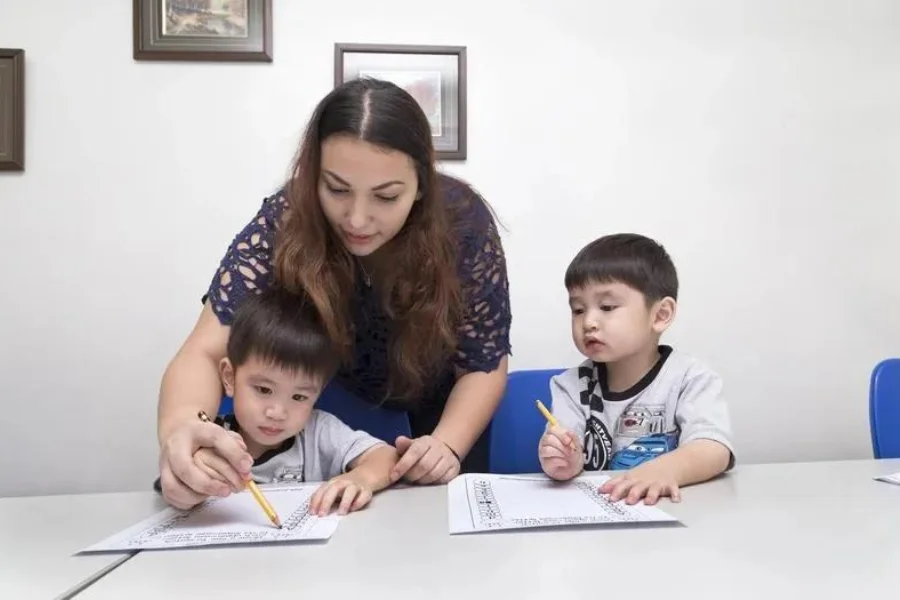
Source: istockphoto
Shadow Teacher Job Responsibilities are a critical feature of inclusive education, aiding as an important connection between students with special needs and the regular classroom atmosphere. These professionals play an important character in supporting and assisting the learning process for children who require additional support.
Shadow Teacher Job Responsibilities include adapting teaching methods to facilitate individual student needs, closely cooperating with parents and educators to create a helpful learning atmosphere, and continuously observing student development. The role of a shadow teacher is not just about supporting educational activities; it extends to nurturing social integration and personal growth.
Understanding Shadow Teacher Job Responsibilities is key to appreciating these dedicated individuals’ impact in shaping an inclusive and supportive educational landscape.
Individualized Support
Shadow teachers are tasked with providing individualized support to their assigned students. This involves understanding the student’s unique needs and learning styles. For instance, if a student has difficulty with auditory processing, the shadow teacher might use visual aids or written instructions to reinforce learning.
Classroom Integration
Classroom integration is the key responsibility to help the student participate in the classroom environment. This means assisting them in understanding and following classroom rules and encouraging interaction with peers. For example, a shadow teacher might facilitate group activities where students can participate comfortably.
Behavior Management
Shadow teachers often help behavior management which might improve learning. They develop strategies to address issues like restlessness or distraction. An example is implementing a reward system for positive behavior or using calming techniques for anxiety.
Collaboration with Educators
Effective collaboration with educators and school staff is crucial. Shadow teachers provide insights into the student’s needs and work together with educators to adapt lesson plans. For example, they might suggest alternative assessment methods that align with the student’s abilities.

Source: alamy
Academic Assistance
They provide direct academic assistance. This can range from clarifying concepts in a way that the student understands to helping with assignments. For example, a shadow teacher might use real-life examples to explain mathematical concepts to a student who learns better with practical methods.
Social Skills Development
Social Skills Development is a significant part of a shadow teacher’s role. They guide students in understanding social cues and appropriate responses. An example is role-playing different social scenarios to prepare the student for real-life interactions.
Emotional Support
Providing emotional support is vital. Shadow teachers are often trusted adults who can help students navigate their feelings. For example, they might teach coping strategies for frustration or anxiety.
Communication with Parents
Updating parents about their child’s growth and challenges is another key accountability. Regular communication with parents ensures that parents are attentive to their children’s experiences and can support their education at home.
Resource Development
Resource Development is also an important responsibility of the shadow teachers. Shadow teachers sometimes create or modify learning materials to suit their student’s needs. This could involve developing visual aids or simplified texts to aid understanding.
Professional Development
Lastly, the professional development of shadow teachers is a must by continually updating their skills and knowledge. This involves joining workshops on special education methods or learning about new educational expertise that could benefit their student.
Shadow teacher job responsibilities are multitasking, requires devotion, adaptive, and a deep understanding of individual child needs. These professionals play an essential role in the educational and personal progress of their students, making a crucial change in their lives.

Source: freepik
Shadow Teacher Training Course
The Shadow Teacher Training Course offered by Vidhyanidhi Education Society is a gateway to a rewarding career in special education. This course is precisely designed to provide inspiring shadow teachers with the skills and information required to shine in their roles. With a focus on practical learning and real-world application, the Shadow Teacher Training Course stands out for its quality and significance.
Key Highlights of the Course
Widely Accepted Certification
The qualifications of this program are recognized worldwide, opening doors to various opportunities in the profession of special education.
Flexibility in Learning
Providing easy-to-do online or distance courses, the program provides individuals who prefer self-paced learning.
Fast Track Completion
For those eager to start their career, the course offers a fast-track route to quickly complete their training.
Assessment Method
The course adopts an MCQ-based online assessment, eliminating the pressure of traditional examinations.
Affordability and Simplicity
With reasonable fees and straightforward course content, the program is available to a wide range of learners.
Expertly Developed Course Material
The course content is both developed and revised by qualified experts, ensuring high-quality and up-to-date resources.
Mentoring by Experienced Professionals
Students receive instructions from teachers who have wide experience in the profession.
Internship Support
Upon completion, students are delivered with a reference letter for internships, assisting in practical experience growth.
Certificate Authenticity
Notably, the term ‘Online Mode of Study’ is not mentioned on the certificate, lending greater authenticity to the qualification.
Shadow Teacher Job Responsibilities encompass a range of skills and competencies that this course aims to impart. From understanding progressive challenges to applying effective teaching approaches, the Shadow Teacher Training Course covers all essential features. It prepares individuals to handle the various needs of students, ensuring they can create a complete and supportive learning atmosphere.
Furthermore, by directing Shadow Teacher Job Responsibilities, the program prepares individuals to work collaboratively with parents, teachers, and other professionals. This all-inclusive method is essential in ensuring the overall development and educational development of students with special needs.
At its core, the Shadow Teacher Training Course from Vidhyanidhi Education Society is not just a learning program; it is a step towards building a more inclusive and understanding academic system. Whether you are a beginner or a skilled educator, this program offers valuable vision and practical skills to improve your capability in handling Shadow Teacher Job Responsibilities efficiently.
To get in touch with Vidhyanidhi Education Society for Shadow Teacher Training Course Please call +919321024137/ +919869866277.
Click Here for the brochure to explore more about the course.
Shadow Teacher Job Responsibilities
FAQs
How can I become a Certified Shadow Teacher?
To become a Certified Shadow Teacher, join a specialized course to get all-inclusive training and practical understanding.
What is the salary of Shadow Teacher?
Shadow Teacher salaries differ; in India, they usually range from ₹15,000 to ₹30,000 per month.
Who needs a Shadow Teacher?
Shadow Teachers are needed for students with special educational needs, requiring personalized assistance in learning.



